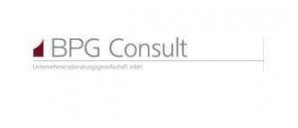Notice: Undefined offset: 24 in /home/bpghost/public_html/content/model/top_image.php on line 71
Notice: Undefined offset: 24 in /home/bpghost/public_html/content/model/top_image.php on line 71
Notice: Undefined offset: 24 in /home/bpghost/public_html/content/model/top_image.php on line 71
Notice: Undefined offset: 24 in /home/bpghost/public_html/content/model/top_image.php on line 71

CORPORATE INCOME TAX
Information about corporate income tax in Poland
All limited liability and joint stock companies (including companies with foreign participation), also companies in organization, joint-stock partnerships, as well as unincorporated organizational entities with exception of unincorporated companies being resident in Poland are payers of the corporate income tax.
All other foreign companies, i.e. non-resident companies, pay corporate income tax only on income and capital gains earned in Poland
Corporate income tax is levied on all taxable income, excluding the one derived from forestry and agricultural activities (with some exceptions).
The corporate income tax rate is: 15 % flat for small taxpayers and 19% for the remaining taxpayers.
Certain categories of income are taxed with a fixed rate (withholding tax), e.g.:
- 19% on dividends,
- 20% on interest, revenues from know-how, licenses, and other intangible services – paid to foreign entities.
If the shareholder of the Polish company is a Polish resident, a resident of the EU, the European Economic Area (EEA) or Switzerland and shareholding of at least 10% (or 25% for Switzerland) is kept for a minimum uninterrupted period of 2 years, dividends paid out by the Polish company qualify for an exemption from the corporate income tax.
Since 1st July 2013 interest and royalties are exempt from the withholding tax provided that certain conditions stipulated in the EU Royalty-Interest Directive are met (e.g. payments are made between 25% parents, subsidiaries or sister companies and the shareholding stems from ownership of shares, the holding is maintained for an uninterrupted period of at least two years).
Costs
The general rule is that costs incurred for the purpose of generating income in Poland, retaining or protecting the sources of income are considered as tax deductible costs, except where otherwise stated in law. A taxpayer may treat any cost as tax deductible, if it is connected with the business activity it carries on, and if such costs have an impact on the amount of profit derived.
Tax deductible costs in Poland are divided into the two categories – direct costs (attributable to particular revenues) and indirect costs (other costs). Direct costs are generally recognized in the tax year in which the related revenue was earned (with some exceptions). Indirect costs are tax deductible on the date they are incurred (with some exceptions).
Non-deductible costs include among others:
- depreciation of motor cars for the part of a car's value that exceeds the equivalent of EUR 20 000
- motor car insurance premiums for the part of the car's value that exceeds EUR 20 000
- interests accrued, but not yet paid, on liabilities
- fines and fiscal penalties
Depreciation of assets for Poland
Assets which have a useful life of more than one year and an initial value of over PLN 10.000 are deemed capital items and therefore subject to depreciation. The expenditures on the acquisition of items with the initial value of less than PLN 10.000 constitute tax deductible costs in the month when they are given for use.
Depreciation of fixed and intangible assets and of legal rights is deductible for tax purposes. However, tax depreciation is usually different from a book depreciation. Tax depreciation rates are specified in the tax law and cannot be exceeded.
Bad debts in Poland
If the debts are not regulated within the period of 30 days (due date of payment up to 60 days) or 90 days (due date of payment exceeding 60 days), the costs have to be corrected (decreased).
Thin capitalization
Thin capitalization rules the limit of the deductibility of interest on loans and credits from certain related parties. Namely, the interest due on loans or credits granted by a foreign related party (directly or indirectly holding at least 25% of stock) are not to be recognized as a tax deductible cost when the loan to share capital ratio exceeds 1:1.
Transfer prices
According to Art. 9a of the CIT Act, a corporate taxpayers must prepare documentation on transactions with associated enterprises (both between resident enterprises and between a resident and non-resident enterprise) and transactions with enterprises resident in the countries applying harmful tax practices.
The documentation must contain the following information:
- the functions performed by the enterprises which are parties to the transaction, including assets used and risks assumed;
- the expected costs relating to the transaction as well as terms and forms of payment;
- the method of calculating the profit;
- the business strategy and other factors influencing the setting of prices and
- with respect to transactions involving intangible property and services, the expected benefits.
According to the definition, domestic relationships occur whenever:
- a domestic entity directly or indirectly participates in management or control over another domestic entity, or owns shares in the share capital of another domestic entity,
- the same legal entities or natural persons participate in management or control over another domestic entities, or own shares in the share capital of such domestic entities,
- family, property or employment relationships occur.
The transfer pricing reporting requirement applies to inter-company transactions the total value of which exceeds in a tax year:
- EUR 100,000 if the value does not exceed 20% of the taxpayer's share capital;
- EUR 30,000 for transactions involving intangible property and services and
- EUR 50,000 in other cases.
With respect to transactions with enterprises resident in countries applying harmful tax practices, the threshold is EUR 20 000. The list of the countries applying harmful tax practices is announced by the Minister of Finance.
The above mentioned regulations apply also to the foreign entities, acting on the territory of Republic of Poland according to Art. 3 Act 2 CIT throughout the fixed establishment.
If the tax authorities or the fiscal control authorities determine income of the taxpayer in the amount higher (loss in the amount lower) than declared by the tax payer in connection with the transactions with related entities, and the taxpayer has not presented those tax authorities with tax documentation required under those provisions - the difference between income declared by the taxpayer and determined by those tax authorities shall be taxed at the rate of 50 %.
As of 1st January 2017, the obligation to prepare the transfer pricing documentation applies only to taxpayers with annual revenue or expenses exceeding EUR 2 000 000. The values of the threshold for significant transactions which have to be documented, range from EUR 50 000 to EUR 500 000, depending on the revenue / expenses.
The documentation must contain:
- Local file
- Benchmarking study (in case of revenue / expenses exceeding EUR 10 000 000)
- Master file (group documentation in case of revenue / expenses exceeding EUR 20 000 000)
- Domestic file (in case of parent company with consolidated revenues exceeding EUR 750 000 000)
Tax Capital Groups
Pursuant to the Corporate Income Tax Law, taxpayers may be groups consisting of at least two commercial companies having legal personality. The groups must be linked by capital relationships –"tax capital groups." Such particular status allows the taxpayer to be a beneficiary of a special favorable tax treatment. A tax capital group may only consist of limited liability companies or joint-stock companies registered in Poland. The average initial (share) capital for each of these companies must not be lower than PLN 1.000.000. The "dominant company" (parent company) should have direct shareholdings of at least 95% in the initial capital of the remaining companies, called "dependent companies" (subsidiaries). Dependent companies cannot hold shares in the initial capital of other companies that make up the group. The most important condition is the requirement of a minimum profitability ratio in the tax group (profits/total sales) on the level of 3%. An agreement to form a tax capital group for the period of at least three tax years must be prepared in the form of a notarial deed and registered by the local tax office of the parent company.
The most important advantage of being a tax capital group is a special method available to calculate taxes. The group's taxable income is a surplus of the sum of profits of all companies over the sum of their losses. Members of the group can establish their own pricing policies without the risk of negative transfer-pricing consequences, which is a real risk for companies that are not members of a tax capital group.











